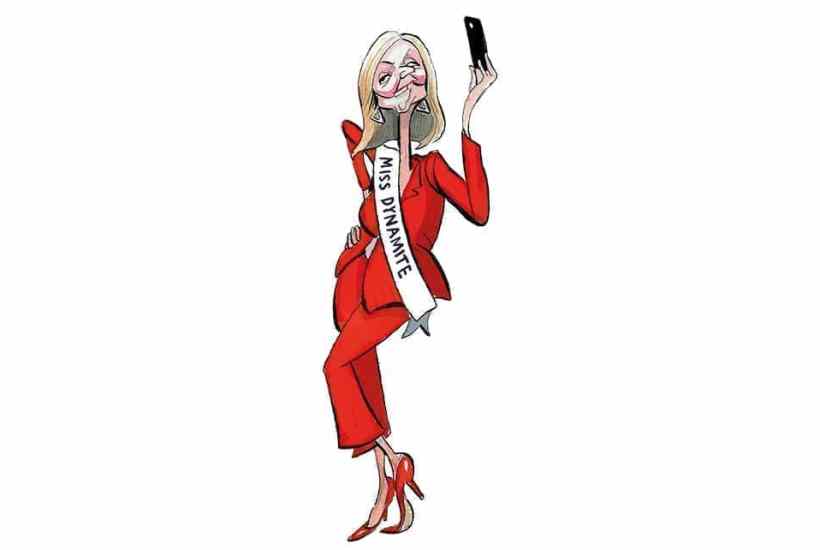I’m not sure that the Conservative party wants to win elections. Tom Tugendhat was knocked out of the leadership contest on Monday, and Liz Truss is now the bookies’ favourite to be the next Prime Minister. Any party that thinks the latter beats the former cannot say it is serious.
There are several reasons for Conservatives to ignore me on this topic. First, I’m not a Conservative. Second, Tugendhat and I are friends. Third, I take a view of party politics that seems to be utterly out of fashion these days.
That view is that politics works better when parties try to win the other side’s votes. When Conservatives pursue Labour voters, the worst bits of right-wing conservatism are muted. When Labour woos Tory supporters, the worst bits of the left are sidelined. In practical terms, this means I want Tories to be more compassionate towards the less fortunate, to care more about inequality, and be less starry-eyed about free markets. I want Labour to be more sympathetic towards business, to care more about taxpayers’ money, and be less starry-eyed about state provision of services.
But the Conservative party isn’t thinking practically: it’s talking to itself. The days of Tony Blair – whose priority was to make the other side as uncomfortable as possible – seem a long time ago. David Cameron once told me how much he hated the experience of facing Blair: ‘Every morning, I wake up thinking, “what’s that bloody man going to do to take away my voters today?”’
If the Conservatives had wanted to have a leader with that skill – the strongest popular appeal to the whole electorate – more of them would have voted for Tom Tugendhat.
One Tory friend contacted me over the weekend to explain why they hadn’t: ‘he’s more popular with Labour voters than [with] Tories’, they said. Apparently, the whole aim of Tory political strategy these days is to hold on to as much of the 2019 vote as possible, to preserve that 80-seat majority. Keeping Conservative voters is their task, not winning over Labour ones.
This strategy misses something rather important. Quite a lot of 2019 Tory voters don’t intend to vote Tory again. A lot have gone to the ‘don’t know’ polling category, and a fair few have moved to Labour. On Opinium’s latest voting intention poll, more than one in ten of the people who currently back Labour voted Conservative in 2019.
That means my Tory friend has it wrong. Retaining Boris Johnson’s 2019 coalition doesn’t mean consolidating Conservative votes, it means winning back Labour supporters. It means building a Conservative brand that appeals to the wavering.
Yet there has been almost no conversation about this goal in the leadership race so far. Of course, when the immediate electorate is Tory MPs and Tory members, it makes sense to focus on their priorities. But don’t those priorities include retaining power?
Winning will depend on the party’s ability to court non-Tory voters, yet the Conservatives have rejected the leadership candidate best-placed to win them over. Recent Opinium polling shows that Tugendhat had the greatest appeal to the general public, in part because of his ability to reach people who are currently recorded as non-Tories. His polling ‘win’ after Friday’s debate came because his performance was rated across the political spectrum.
When people who didn’t vote Tory last time were polled after Sunday night’s dismal debate, Tugendhat was rated as the candidate most likely to make them vote Conservative on 18 per cent. Truss was last on 4 per cent. Yet she is seen as a better bet for the leadership because current Tory voters like her. Tugendhat’s appeal to the wider public has counted against him, while Truss is now the bookies’ favourite to enter No. 10.
This is curious, to say the least. In 2019, the Conservative party elected Boris Johnson because he was a ‘Heineken Tory’, able to reach parts of the electorate that other candidates could not. What happened in the last three years? The party has rejected the one candidate who showed signs of having the Heineken appeal, albeit with somewhat different politics to Johnson, and is seriously considering a candidate who doesn’t appeal to non-Tories.
In politics as in sport, you can’t go far wrong if you always try to do the thing that your opponent least wants you to do. That’s why Cameron hated facing Blair so much, but found Gordon Brown a less troubling prospect. It’s why Blair loved Iain Duncan Smith and why the Tories were delighted by Jeremy Corbyn. Some of Truss’s biggest fans will be in Labour HQ.
The Conservatives had a chance to do something that would have made Keir Starmer uncomfortable. Instead, they are satisfying themselves. History suggests that a party that thinks about its own pleasure instead of hurting the other side isn’t really serious about winning.
Got something to add? Join the discussion and comment below.
Get 10 issues for just $10
Subscribe to The Spectator Australia today for the next 10 magazine issues, plus full online access, for just $10.




















Comments
Don't miss out
Join the conversation with other Spectator Australia readers. Subscribe to leave a comment.
SUBSCRIBEAlready a subscriber? Log in